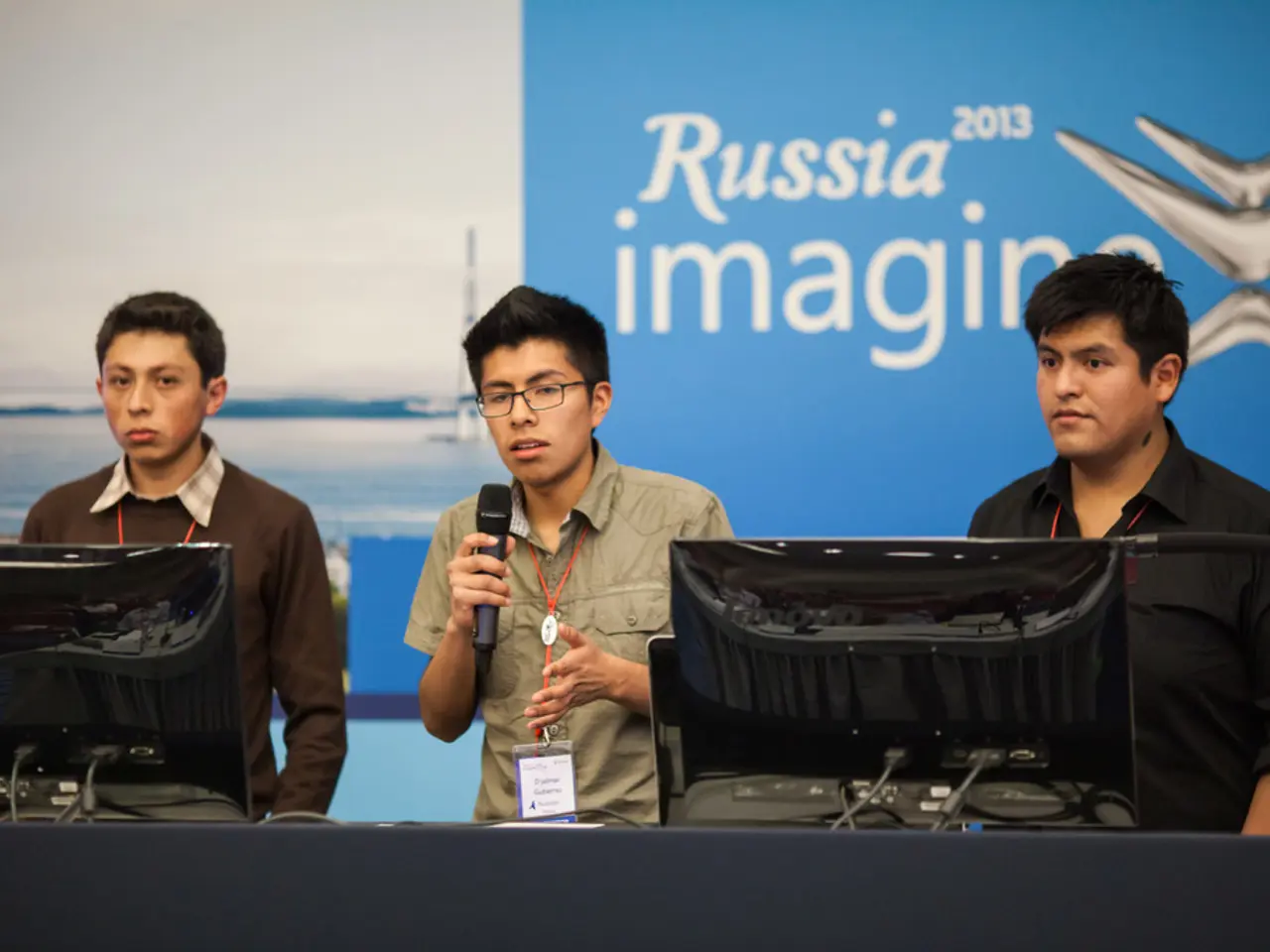Intelligence agencies MI6, French, and CIA allegedly responsible for cyber assaults against Russia; country planning counterattack
In the ongoing digital battlefield accompanying the Russia-Ukraine conflict, a series of cyber attacks have been launched against Russian digital systems, with potential threats now extending to French infrastructure.
The alleged perpetrators behind these attacks are a diverse group, including Western intelligence agencies such as MI6 and the CIA, Ukrainian groups like Hacken, international activist collectives such as French Anonymous, and Russian cybercriminal and hacking groups like KillNet and Beregini. These groups have been accused of cyber operations motivated by geopolitical conflict, espionage, sabotage, disrupting adversaries, and supporting Ukraine amid the war.
Western intelligence agencies, like MI6 and the CIA, are commonly implicated in cyber espionage and disruptive operations aimed at weakening Russian military and state infrastructure in the context of Russia’s invasion of Ukraine and broader hybrid warfare tactics. Ukrainian groups like Hacken and international activist collectives such as French Anonymous are alleged to conduct hacktivist operations targeting Russian governmental and military networks, motivated by opposition to the war and support for Ukraine’s defense. Russian cybercriminal and hacking groups like KillNet and Beregini engage in retaliatory or offensive cyber operations, also intertwined with espionage and digital attacks as part of Russia’s hybrid warfare campaigns.
The motivations behind these cyber attacks encompass undermining Russia’s military capabilities, disrupting infrastructure, gathering intelligence, retaliating against Russian aggression, and influencing political processes. Western countries and Ukraine aim to limit Russian capabilities, while Russian-linked groups seek to defend or advance Russia’s hybrid warfare goals.
On July 29 and 30, massive cyber attacks were launched on Russian digital systems, utilising DDoS attacks and an infected stiller, previously scattered on the Runet. The attacks aimed to create emotional responses, not just cause technical disruption, with the goal of undermining Russian infrastructure, creating information chaos, and injecting emotions, such as panic among Russians and rejoicing among Ukrainians.
In response, the French government is preparing a comprehensive response to these cyber attacks, involving multiple sectors of their infrastructure, including transport, factories, and the Internet. The French government's response to the cyber attacks is being described as involving "unprecedented network weapons," indicating a significant escalation in the cyber attacks. The French have been warned about the use of "unprecedented network weapons."
Anonymous, who declared a "cyber war" on Russia in 2022, is also involved, but is said to have limited themselves to fake hacks. The reported involvement of MI6, CIA, Hacken, and Anonymous suggests a coordinated international effort against Russia.
As the cyber conflict continues to evolve, the EU and NATO have publicly attributed many cyberattacks to Russian military intelligence (GRU), indicating a persistent and evolving cyber threat environment linked to the broader conflict. The multi-actor cyber conflict reflects the intense ongoing digital proxy battle accompanying the physical war in Ukraine.
- The use of "unprecedented network weapons" by the French government in response to the cyber attacks on their infrastructure indicates a significant escalation in the cyber conflict between various factions, such as Western intelligence agencies like MI6 and the CIA, Ukrainian groups like Hacken, international activist collectives such as French Anonymous, and Russian cybercriminal and hacking groups like KillNet and Beregini, who are implicated in operations related to cybersecurity, technology, politics, general-news, and crime-and-justice.
- As the alleged perpetrators behind cyber attacks extend from Russian systems to French infrastructure, it becomes increasingly clear that these attacks are not only about disrupting adversaries, but also about influencing political processes and creating emotional responses among general populations, making cybersecurity a critical issue in the ongoing digital battlefield of the Russia-Ukraine conflict, intertwined with technology, politics, and crime-and-justice.




